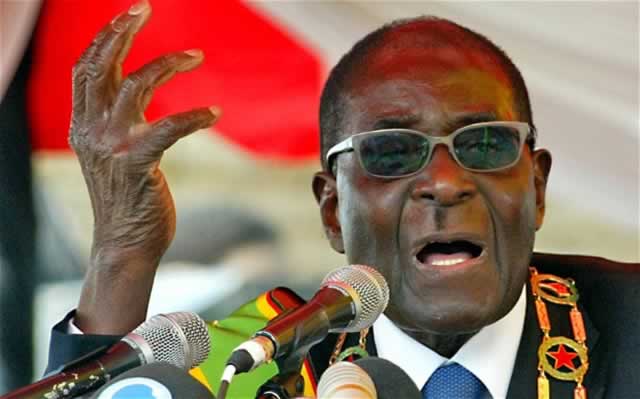Change of game plan in diamond mining to produce results

Limukani Ncube
THE story of diamond mining in Zimbabwe reads like a village script in which a team of hunters was tasked with going out to hunt and bring back meat to feed the whole village.
With expectations high from the elderly, women and children left behind, those who had gone out on the hunting expedition come back home empty-handed. When asked by the poor souls at home on what they had killed in the bush, they majestically pointed at their protruding over-fed bellies and said “impala ila” (the impala is here).
There was hue and cry in the village as people felt cheated and let down. They had heard their dogs barking from a distance, crying triumphally — you cannot mistake the winning war cry of a hunting dog by the way — and the same goes to diamond mining in Chiadzwa.
In as much as the dogs used in the hunting expedition belonged to the various families in the village and the impala(s) killed belonged to the community, God-given to them like any other natural resource, the diamonds are a natural resource; God-given to the people of Zimbabwe and those who were tasked to mine there are like the hunters given the task to feed the village.
There has been hullaballoo about the proceeds from the diamond mining fields. The Marange-Zimunya Community Share Ownership Trust has also come under the spotlight with companies and government officials in debate on what companies should contribute and what they pledged. And you cannot fault those who imagine that the only evidence that there was a kill in the diamond fields is some protruding bellies from some executives and some people involved in one way or the other with mining companies there, yet there is nothing tangible that has gone to the people of Zimbabwe.
In that light, moves by government to reorganise diamond mining in the country are more than welcome.
Looking at the bigger picture, Zimbabweans ought to have started benefiting from mineral resources and particularly diamonds which have changed lives where ever they are found. The global diamond industry employs some 10 million people directly and indirectly, including Africa. The vast majority of the world’s diamonds come from sources that use the revenues generated by diamonds to aid their national development.
Diamondsfact.org says given good governance and appropriate laws, diamonds are a vital source of revenue for building infrastructure and essential social services such as hospitals and schools.
“We know that diamonds are a valued source of employment, foreign exchange, tax revenue, new investments and play a positive role in enhancing the overall economic well being of countries and local communities,” said former South Africa President Thabo Mbeki, when talking about the life-changing diamonds in some forum.
The diamonds website further quotes former Botswana President, Felistus Mogae, whose country’s economy heavily leans on diamond mining as having said on June 7, 2006: “For our people, every diamond purchase represents food on the table; better living conditions; better healthcare; safe drinking water; more roads to connect our remote communities and much more.”
It is for the same reasons that President Mugabe has been in and out of the country to see how best the diamond mining industry can be re-energised so that all Zimbabweans can benefit from it. The government has noted that the country has not been getting its fair share of the cake from diamond sales, and thus, plans are underway to realign the companies mining diamonds with the State taking “exclusive responsibility”, and the resource getting exploited on parameters of strict accountability.
Speaking in Dubai last week where he met diamond dealers, President Mugabe said unlike gold mining where many players were allowed, diamond mining would soon be exclusive to the State, with government rationalising existing operations to create one State-led company.
“Government decided it should be the responsibility of the State to organise the production of diamonds as it is the case with gold. But the diamond area will be much stricter, a product produced by the State with whatever partner,” he said.
Chronicling how multinational companies had cheated the country of its diamonds in the past, the President noted that only three or four of the seven diamond mineral companies at Marange were meaningfully active, with some of them operating deceitfully.
“We are naturally disqualifying these and we will have two or three who have produced results,” added the President.
There have also been concerns in the past that the diamond sales were not contributing as per expectations to the Treasury. Nonetheless, countries such as Botswana, Namibia and South Africa offer ongoing proof that diamond revenues can create sizeable benefits to the economy in countries where they are sourced. In these countries, diamonds have contributed to funding impressive economic growth and stability.
Media reports say diamonds account for 33 percent of the Gross Domestic Product of Botswana (approximately $3.3 billion). Since Botswana independence in 1966 when they started mining diamonds, the GDP has had an annual growth of about seven percent. Two large mining companies, Debswana (formed by the government and South Africa’s De Beers in equal partnership) and Bamangwato Concessions, Ltd. (BCL, also with substantial government equity participation) operate in the country.
In Namibia, diamonds represent approximately 10 percent of GDP, 40 percent of export revenue and seven percent of the government’s annual revenue. Namdeb, a diamond company in Namibia, is the largest corporate social responsibility contributor to the socio-economic development of Namibia.
South Africa’s general total mining reserves remain some of the world’s most valuable, with an estimated worth of $2.5 trillion. Overall, the country is estimated to have the world’s fifth-largest mining sector in terms of GDP value. It has the world’s largest reserves of manganese and platinum group metals (PGMs), according to the US Geological Survey, and among the largest reserves of gold, diamonds, chromite ore and vanadium.
With South Africa’s economy built on gold and diamond mining, the sector is an important foreign exchange earner, with gold accounting for more than one-third of exports. In 2009, the country’s diamond industry was the fourth largest in the world. South Africa is also a major producer of coal, manganese and chrome.
Other countries like Angola, Tanzania, the Democratic Republic of Congo and Sierra Leone also receive major economic benefits due to revenues from diamonds.
Global communities broadly accept that the creation of a sustainable future for Africa lies in its ability to develop and maximise its natural resources. Diamonds play a major role in these efforts.
The cry from Zimbabweans has always been that we cannot have a resource of Chiadzwa’s international significance benefitting the elite and their contacts, as is widely suspected, yet Zimbabweans are collectively looking to diamonds to drive economic recovery and growth.
The villagers are waiting.








Comments